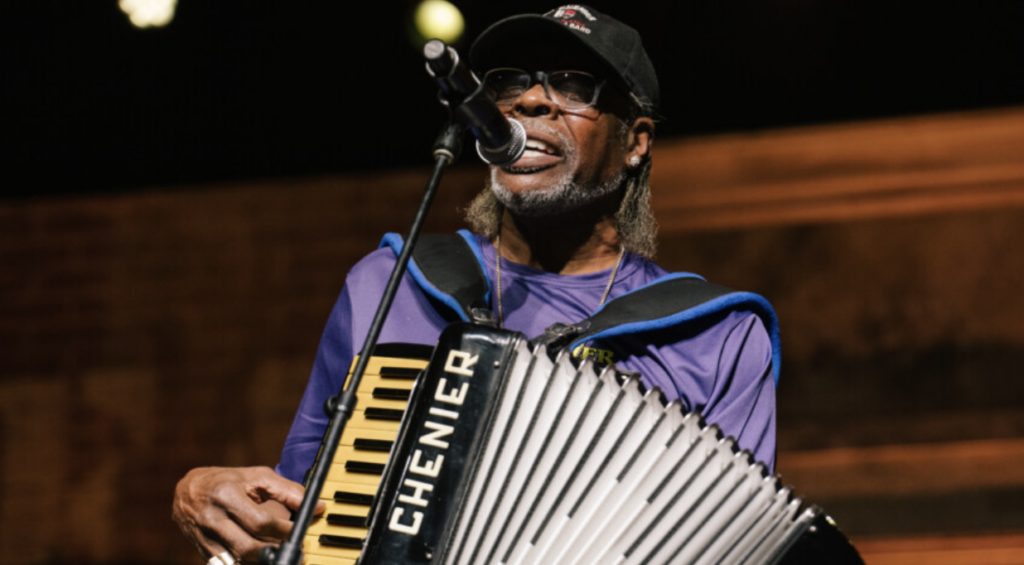Insanely Rich

Nearly one year ago, on March 21, 2001, a teller at the United Missouri Bank branch at 14th and Grand found a disheveled man in his mid-fifties at her window. He wore an old red plaid work shirt and had comb marks in his greasy gray hair. His fingernails were long, and under his square black glasses was a grizzled beard that looked like it had been chopped with scissors.
He said his name was Robert F. Yockel Jr. and that he was there to withdraw money from his account. He passed the teller an ID card and recited his Social Security number.
“Look under Bob Yockel,” the man suggested when she couldn’t find an account. When she still had no luck, he suggested she type in “Drug Bust” or “Evangelistic Services” or “Triple X Deluxe.”
“This is crazy. Let me see your screen. I know I have money in there,” he said, snatching his ID card back. Then Yockel asked, “Does it matter to you if you go to heaven or hell?” She’d go to heaven, he advised, if she gave him the money.
The twenty-year-old teller wet her pants. She grabbed a wad of cash — $6,000 — from her drawer and handed it over. “How’s that?” she asked.
“That’s great. I’ll take it.” Yockel replied.
As Yockel left, he pumped his fist in the air and exclaimed, “Yeah! Yeah!” as he passed a security guard in the lobby.
The guard rushed to the counter and saw the upset teller. Then the guard ran outside and peered into an idling white Chevy Malibu. Through tinted windows, she saw Yockel contentedly counting money.
Yockel’s next stop was B&C Party Shoppe, a liquor store at 27th and Troost.
“He just came in and was handing out money to everybody,” recalls Jack Weber, who was working behind B&C’s counter that day. “He was telling everybody he was a self-made millionaire.”
Yockel bought booze for everyone in the store. Then he paid a woman $500 to kiss him.
Three days later, on March 24, Yockel walked into another UMB branch, just four blocks from where he’d hit the jackpot. This time, an employee called the police, thinking Yockel was acting “suspiciously,” according to an affidavit from FBI special agent Jonathan Tucker. Yockel was arrested by Kansas City, Missouri, police and taken to jail.
Court records show that Yockel was released on bond and sent to a home for the mentally ill to await trial on federal bank robbery charges. A nurse’s report from his court file shows that while there, Yockel experienced delusions and quarreled with staff and other patients.
“I am working with the FBI to get the syndicate out of here,” Yockel reportedly told several staffers. And he accused another male patient of “parading” around in order to make him nervous. He sometimes refused to take his antipsychotic medication and often would not eat.
Yockel was evaluated at a federal clinic and found competent to stand trial — he understood the judicial process and the charges against him. He refused to enter an insanity defense.
Yockel’s psychiatrist wrote to the court, saying that Yockel had long suffered from delusions involving God and money; Yockel would sometimes drive around until he ran out of gas because he thought God would fill up his tank. At one time, however, Yockel did have a UMB account.
“He certainly did think God was to supply the money and when he received it, it just proved God wanted him to have the money,” the doctor wrote. “His mental problems caused him taking the money.”
According to the letter, Yockel’s mental problems began in the early 1990s, when he was originally diagnosed with “major depression with psychotic features,” but since then, his condition has worsened. The letter also said that Yockel has had several brief hospitalizations and has received electroshock treatments without much success. After a brief stay at KU Medical Center, Yockel started wandering around Kansas City with “increased psychosis” and was often in a “disturbed state of mind.” The doctor concurred with a colleague’s diagnosis of Yockel’s mental illness as “schizo-affective disorder,” a category of psychosis that bears similarities to both schizophrenia and bipolar disorder.
The psychiatrist recommended in the letter that Yockel be sent to a mental hospital. But on February 27, 2002, a federal jury found Yockel guilty of bank robbery.
In the U.S. District Court of Western Missouri, the jury decided that Yockel’s withdrawal fit the legal definition of bank robbery — that he had taken federally insured money from a teller by causing her to fear physical harm.
“[The teller] knew the only way you could go to heaven or hell is if you were dead,” said federal prosecutor Linda Marshall. “That’s a reasonable interpretation. She was very frightened.”
Yockel had wandered into a Firstar Bank branch several times before the visit to UMB that landed him in jail. A few times, Firstar’s security guard had called police to escort Yockel out of the bank because tellers were afraid of him. Weber testified, however, that Yockel did not seem dangerous or threatening in the liquor store.
Yockel faces up to five years in federal prison. Although his sentence hasn’t been set, his attorney, Stephen Moss, says the court is basically obligated to send a convicted bank robber to prison.
At least one local mental-health advocate says sending Yockel to prison is not the right way to deal with a mentally ill person.
“It’s horrible what we do to people with mental illness,” says Guyla Stidmon, executive director of the National Alliance for the Mentally Ill of Greater Kansas City. “Locking someone like this up in prison is unfair, very unfair and it benefits no one. It’s inhumane.”
During his trial, Yockel looked harmless, sitting in a crumpled gray mismatched suit and scribbling notes on a yellow legal pad. His elderly mother, wearing a brown fur hat and rhinestone earrings, looked on tearfully.
When Yockel entered the courtroom after a recess, he turned to look at his mother and gave her a wide grin and a double thumbs-up. “It’s A-OK, Mom. A-OK,” he called out.
Moss told the jury that Yockel may be “odd” and “a nuisance,” but he is no bank robber. The attorney compared Yockel’s demand for money to a homeless person’s begging on the streets, approaching a passerby and requesting spare change.
“That’s a tense situation,” Moss said. “But if you give them a quarter to make them go away, is that a robbery?”
Moss is seeking a new trial for Yockel.




